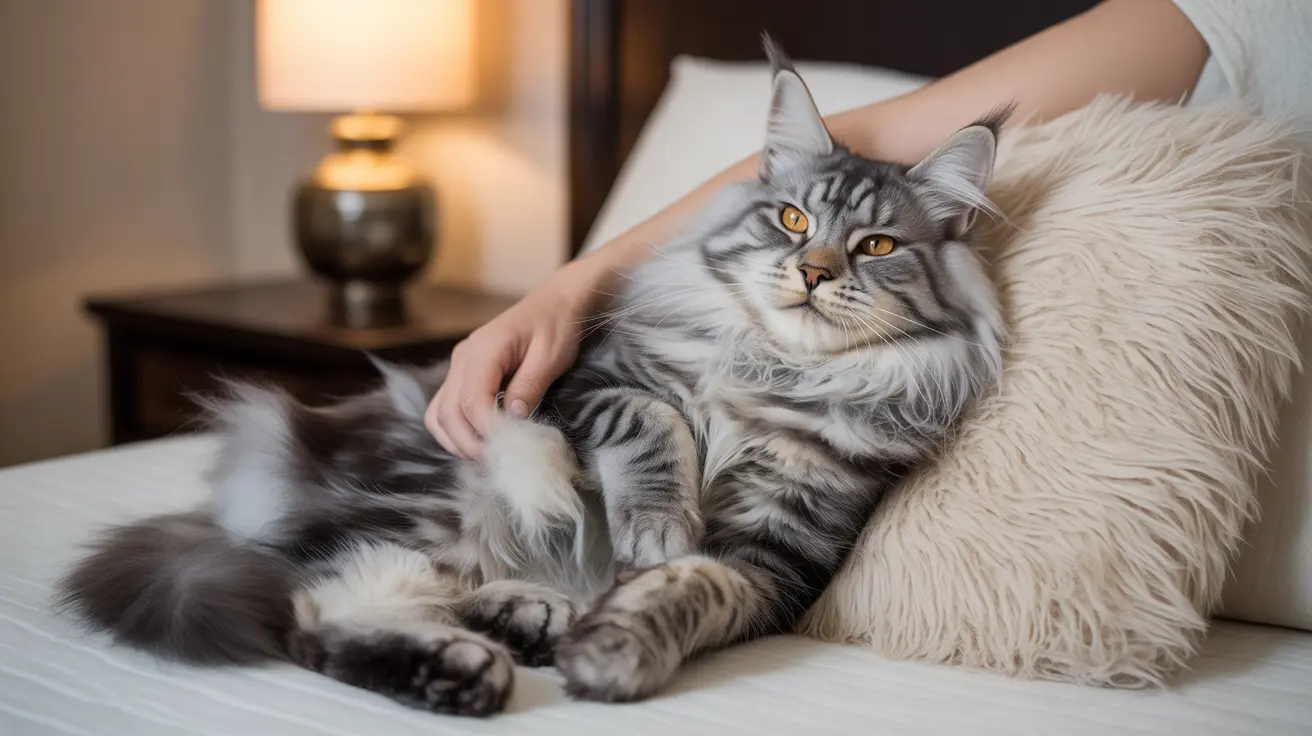The Science Behind Your Cat's Head-Sleeping Preference
Cats are naturally drawn to warmth, and your head happens to be one of the warmest parts of your body. Scientists have found that humans lose approximately 7-10% of their body heat through their heads, making it an attractive spot for heat-seeking felines. Additionally, your head typically remains uncovered during sleep, unlike the rest of your body under blankets, providing easy access to this warmth source.
The average cat's body temperature ranges from 100.4 to 102.5°F, slightly higher than humans. This means they're constantly seeking warm spots to maintain their optimal temperature, especially during rest periods.
The Emotional Connection
When your cat chooses to sleep by your head, it's often a sign of deep trust and affection. Cats are most vulnerable while sleeping, and selecting a spot close to your face indicates they feel completely safe in your presence. This behavior often mirrors the way kittens sleep close to their mother's head for security and warmth.
The position also allows your cat to monitor your breathing and movements, maintaining a close connection even during sleep. This proximity helps strengthen the bond between you and your feline companion.
Scent and Territory Marking
Your head and hair carry your strongest personal scent, thanks to numerous sweat and oil glands in the scalp. Cats have an extremely developed sense of smell and find comfort in familiar scents. By sleeping near your head, they're both enjoying your scent and marking you with their own through their facial glands, effectively claiming you as part of their family group.
Practical Considerations
From a practical standpoint, your head moves less during sleep compared to other body parts, making it a stable resting place. The elevated position of your pillow also provides a strategic vantage point, allowing your cat to survey their surroundings while feeling secure.
When to Be Concerned
While head-sleeping is typically normal behavior, sudden changes in sleeping patterns might indicate stress or health issues. If your cat abruptly begins sleeping closer to your head or shows other behavioral changes, consider consulting your veterinarian to rule out any underlying problems.
Frequently Asked Questions
Why does my cat prefer to sleep by my head instead of other parts of my body?
Cats prefer sleeping by heads because this area provides consistent warmth, remains uncovered, and offers a stable sleeping surface. The head also emits strong personal scents that cats find comforting and familiar.
Is it a sign of affection or trust when my cat sleeps on or near my head?
Yes, this behavior strongly indicates trust and affection. Cats only sleep in vulnerable positions around those they completely trust, making this a significant sign of your strong bond.
Can my cat sleeping by my head affect my sleep or allergies?
Yes, it can impact both. Cat allergies may worsen with such close contact, and their movements might disturb your sleep. If you're experiencing issues, consider creating an alternative comfortable sleeping spot for your cat.
How can I safely discourage my cat from sleeping on my head at night?
Provide alternative warm sleeping spots, such as a heated cat bed nearby. You can also use gentle deterrents like aluminum foil on your pillow or create a cozy space at the foot of your bed.
What does it mean if my cat suddenly starts sleeping closer to my head than usual?
Sudden changes in sleeping behavior might indicate stress, anxiety, or potential health issues. If this change is accompanied by other behavioral changes, consult your veterinarian.
Conclusion
Your cat's preference for sleeping by your head is a complex behavior rooted in trust, comfort, and biological needs. Whether you choose to embrace or redirect this habit, understanding its significance can help strengthen your bond with your feline companion. If you decide to maintain this sleeping arrangement, enjoy the special connection it represents between you and your cat.






